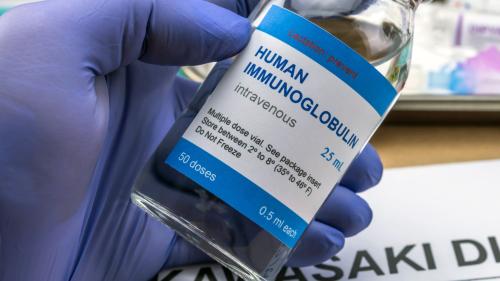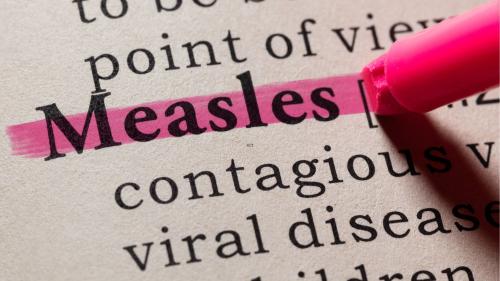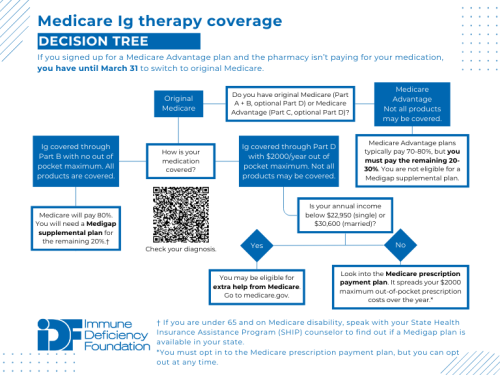
-
Understanding primary immunodeficiency (PI)

Understanding PI
The more you understand about primary immunodeficiency (PI), the better you can live with the disease or support others in your life with PI. Learn more about PI, including the various diagnoses and treatment options.
-
Living with PI
-
Addressing mental health
-
Explaining your diagnosis
- General care
- Get support
- For parents and guardians
-
Managing workplace issues
- Navigating insurance
-
Traveling safely

Living with PI
Living with primary immunodeficiency (PI) can be challenging, but you’re not alone—many people with PI lead full and active lives. With the right support and resources, you can, too.
-
Addressing mental health
-
Get involved

Get involved
Be a hero for those with PI. Change lives by promoting primary immunodeficiency (PI) awareness and taking action in your community through advocacy, donating, volunteering, or fundraising.
-
Advancing research and clinical care
-
Grants
-
IDF surveys
-
Participating in clinical trials
-
Diagnosing PI
-
Consulting immunologist
-
Clinician education

Advancing research and clinical care
Whether you’re a clinician, researcher, or an individual with primary immunodeficiency (PI), IDF has resources to help you advance the field. Get details on surveys, grants, and clinical trials.
-
Grants
Updated December 23, 2022
In addition to the accomplishments below, Congress passed legislation attached to the 2023 spending omnibus that made Medicare reimbursement for supplies and services necessary for home infusions of intravenous immunoglobulin (IVIG) permanent, a priority for IDF for almost a decade.
Originally published December 14, 2022
The Immune Deficiency Foundation (IDF) prioritized advocacy in four areas for 2022: ensuring access to care, providing a voice for those with primary immunodeficiency (PI), expanding screening and diagnosis, and supporting emerging research and therapies.
Work continues in all of these areas headed into 2023, but IDF has also made significant progress with specific issues under these priorities. Here are IDF’s top advocacy accomplishments of 2022.
Public health guidance for the immunocompromised
As a steering committee member of the Immunocompromised Collaborative, IDF engaged both the Centers for Disease Control and Prevention (CDC) and the National Institutes of Health (NIH), resulting in improved COVID-19 and mpox guidance for those who are immunocompromised. The drumbeat “What about the immunocompromised?” across two different public health emergencies emphasized to agencies the importance of providing timely and specific guidance for immunocompromised communities during infectious disease crises. IDF was also able to build ties with agency staff and position the Collaborative as a go-to resource for the immunocompromised perspective.

President Jorey Berry on Capitol Hill.
Temporary hold on DHS policy that threatens plasma supply
IDF joined the GBS/CIDP Foundation in filing two amicus briefs in lawsuits challenging the Department of Homeland Security’s (DHS) June 2021 decision to prohibit compensation for Mexican nationals with B1/B2 visitor visas who donate plasma. The briefs laid out how the decision negatively impacts plasma donations along the U.S. border with Mexico, how lower plasma supply impacts the manufacture of plasma-derived therapies like immunoglobulin (Ig), and the importance of Ig to those with PI. In September, the United States District Court granted a preliminary injunction barring DHS from enforcing the policy while the case moves forward.
Four new state-level Rare Disease Advisory Councils
To represent the unique perspectives and concerns of those with rare diseases like PI, IDF supports establishing a Rare Disease Advisory Council (RDAC) in all 50 states. RDACs serve as advisors to state government on a range of issues that directly affect those with rare conditions, from healthcare access to insurance regulations. In 2022, four states enacted legislation creating an RDAC: Colorado, Connecticut, Georgia, and Maine. Twenty-four states now have RDACs, and several others are working to get RDACs established.
Ban on copay accumulators in two more states
IDF has also been working at the state and federal level to ban copay accumulator programs. Copay accumulators are an insurance benefit structure that does not ‘count’ drug copays from third parties (known as copay assistance) toward a person’s insurance deductible or out-of-pocket maximum. These programs target those who rely on assistance from charities or manufacturers to afford their medications and essentially allow insurance companies to collect deductibles or out-of-pocket maximums twice. This year, Washington state and Delaware passed legislation prohibiting copay accumulators, bringing the total to 14 states with copay accumulator bans. IDF continues to actively work on legislation in other states as a member of the steering committee for the All Copays Count Coalition.
How you can help
IDF’s work on the issues above is not possible without advocates from the community, who bring the voice of those with PI to state and federal policymakers. If you are interested in advocating with us, sign up for IDF’s Action Alerts. Action Alerts let you easily sign on to letters or send templated emails to your legislators, letting them know how policies affect the PI community. Sign up for Action Alerts below to be notified when we need your voice on an issue.
Topics
Sign up for updates from IDF
Receive news and helpful resources to your cell phone or inbox. You can change or cancel your subscription at any time.





The Immune Deficiency Foundation improves the diagnosis, treatment, and quality of life for every person affected by primary immunodeficiency.
We foster a community that is connected, engaged, and empowered through advocacy, education, and research.
Combined Charity Campaign | CFC# 66309




